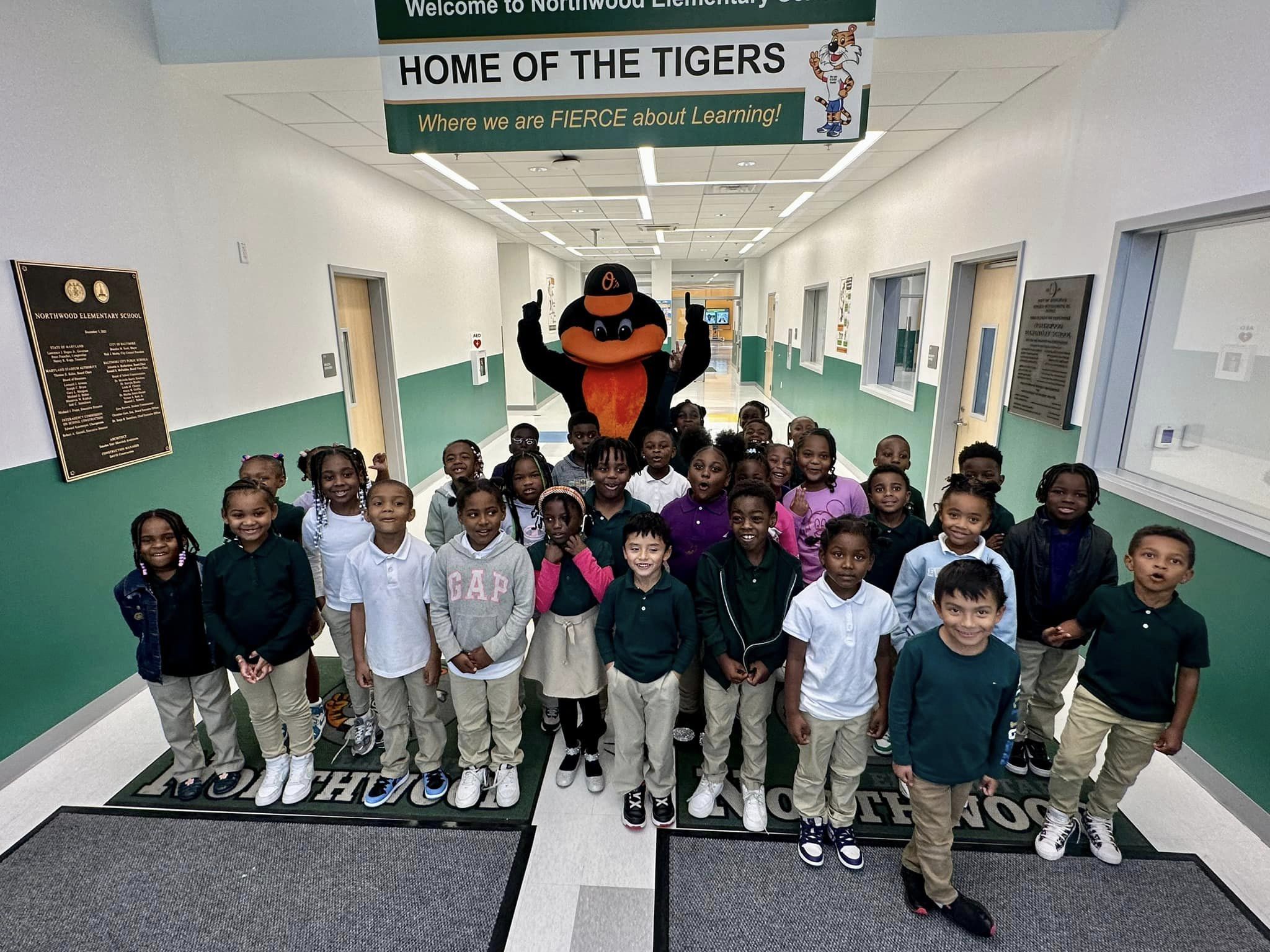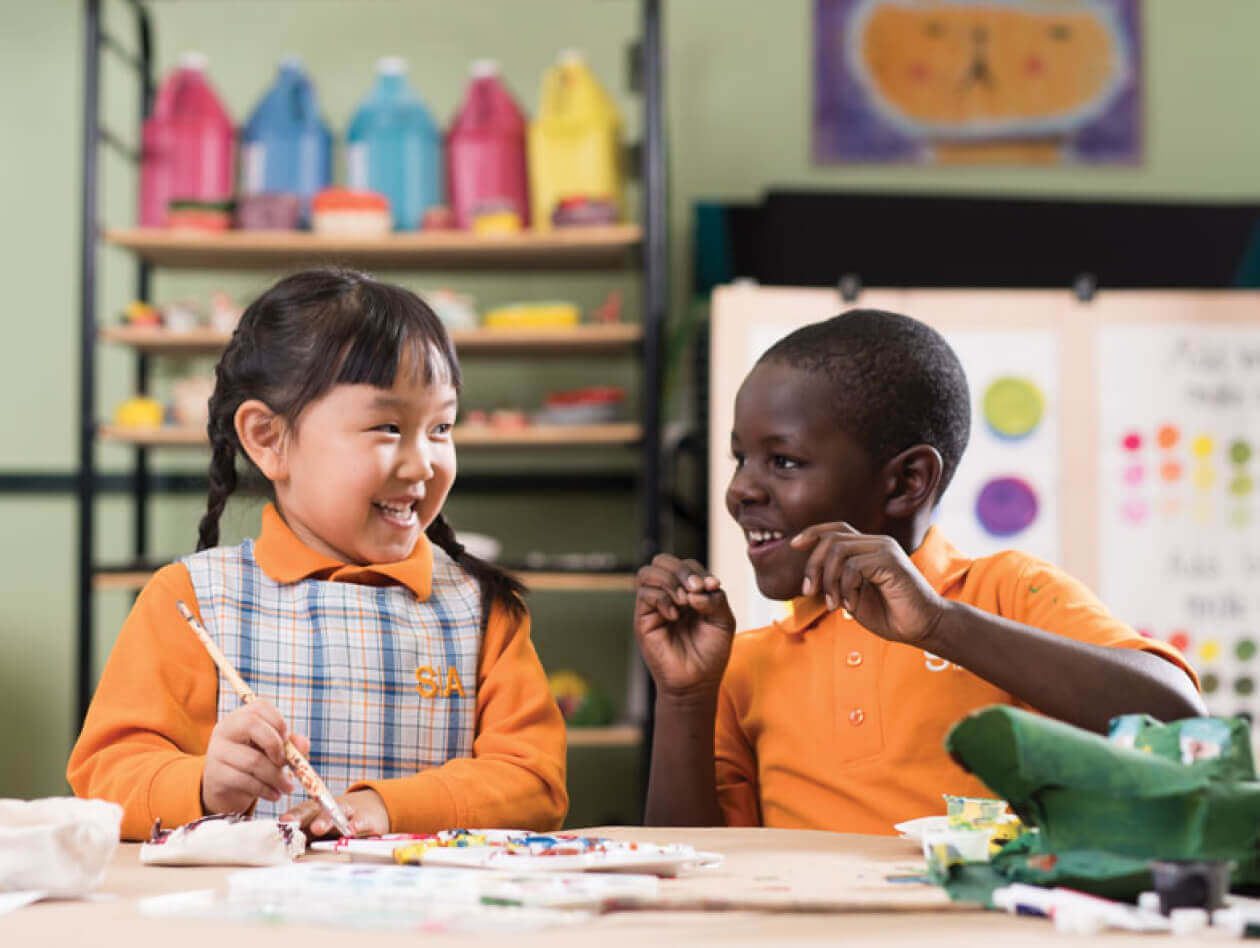All About Kindergarten: Comprehending the Importance of Early Childhood Education Programs
Kindergarten functions as a critical point in a youngster's early growth. It presents foundational skills necessary for future learning and social interactions. With different activities, kids participate in organized play that advertises cognitive development. Recognizing the subtleties of different preschool programs can even more brighten their relevance. What details advantages do these very early education and learning experiences use, and how do they shape a youngster's trajectory? The answers may be a lot more complicated than one might expect.

The Role of Preschool in Youngster Development
Some might view kindergarten simply as a transition phase prior to formal schooling, it plays an important role in kid growth. This fundamental phase fosters vital social, psychological, and cognitive skills that are pivotal for long-lasting understanding. In kindergarten, youngsters take part in structured play, which boosts their ability to coordinate, share, and deal with problems with peers. These interactions prepared for healthy and balanced connections and enhanced interaction abilities.
Additionally, kindergarten presents kids to fundamental principles in literacy and numeracy, stimulating inquisitiveness and a love for discovering. Educators direct trainees through tasks that advertise vital and analytic thinking, crucial elements of intellectual growth. The environment emphasizes routine and structure, helping children establish self-discipline and freedom. By concentrating on alternative development, preschool guarantees that kids are not only prepared academically but also socially and psychologically for the difficulties of future educational undertakings.
Key Benefits of Very Early Childhood Education
Early childhood education supplies numerous advantages that can significantly affect a kid's advancement and future success. Research indicates that youngsters that get involved in quality very early education and learning programs exhibit improved cognitive skills, much better language advancement, and improved social skills compared to their peers that do not participate in such programs. These fundamental abilities are essential as they set the stage for academic success and lifelong understanding.
Early education promotes emotional advancement by providing children with chances for participating play and dispute resolution, assisting them establish durability and empathy. Furthermore, these programs typically aid connect the space for kids from varied backgrounds, making certain equitable access to finding out resources and experiences
Inevitably, purchasing early childhood education not just advantages specific children yet likewise adds to more powerful neighborhoods, as informed individuals are extra likely to involve favorably in society and the workforce.
Different Sorts Of Preschool Programs
Various preschool programs cater to different educational viewpoints and requirements. Full-day choices offer prolonged discovering time, while the Montessori approach highlights self-reliance and hands-on experiences. In addition, play-based discovering approaches foster creative thinking and social abilities, showing the diversity in early childhood education.
Full-Day Kindergarten Options
Many parents and instructors identify the growing significance of full-day preschool options in very early youth education and learning. Full-day programs normally offer an even more comprehensive learning experience, permitting youngsters to take part in a variety of tasks throughout the day. These options often consist of a balanced educational program that incorporates academic, social, and psychological advancement. Some districts use conventional full-day preschool, while others might provide specific programs, such as double language or thematic understanding atmospheres. Additionally, full-day preschool can accommodate functioning moms and dads by straightening institution hours with typical work timetables. Research suggests that pupils in full-day programs frequently demonstrate enhanced academic performance and social abilities compared to their peers in half-day setups, making these choices increasingly prominent in lots of neighborhoods.
Montessori Technique Review
Although the Montessori method is simply one of lots of instructional approaches, it has gained considerable interest for its special focus on child-led understanding and expedition. Developed by Dr. Maria Montessori, this method concentrates on fostering self-reliance and self-directed activity in youngsters. Classrooms are usually created to urge activity and hands-on engagement with materials, enabling kids to discover at their very own rate. Montessori teachers serve as guides, facilitating learning via monitoring instead of direct direction. This strategy focuses on mixed-age class, promoting cooperation and peer discovering. In addition, the Montessori method stresses sensible life abilities and sensory activities, aiding youngsters create a solid foundation in both social and scholastic expertises. Parents often appreciate the holistic development that this technique nurtures in their youngsters.
Play-Based Understanding Techniques
Play-based understanding techniques are integral to various kindergarten programs, highlighting the relevance of play as an essential mode of finding out for young kids. These techniques motivate expedition, imagination, and social communication, permitting children to engage in hands-on experiences that cultivate psychological and cognitive advancement. Numerous types of play, such as imaginative, constructive, and physical play, are utilized to support discovering purposes throughout subjects like mathematics, literacy, and science. Additionally, play-based programs commonly integrate collaborative tasks, promoting team effort and interaction abilities. Educators observe and assist youngsters throughout play, guaranteeing that learning outcomes are attained while maintaining a joyful understanding setting. This strategy not only enhances scholastic preparedness but additionally grows a long-lasting love for knowing, making it an important element of early youth education and learning.
The Relevance of Play in Discovering
A significant body of study underscores the vital role of play in early childhood years education and learning, additional info illustrating its profound influence on understanding and growth. Play works as an important mechanism through which young youngsters explore their environment, develop cognitive abilities, and enhance their problem-solving abilities. Taking part in imaginative play enables children to trying out various roles and scenarios, fostering creativity and vital thinking.
Moreover, play-based understanding urges children to involve with materials and principles in a hands-on fashion, making abstract ideas more reasonable and concrete. This experiential knowing technique not just catches children's passion yet likewise advertises inherent motivation, basic for lifelong understanding.
Via play, youngsters also fine-tune their motor skills and spatial awareness, laying the groundwork for much more complicated scholastic tasks. Essentially, prioritizing play in early childhood education and learning programs is essential for nurturing alternative growth, gearing up kids with the fundamental skills needed for their future educational trips.
Social Abilities Advancement in Preschool
Building on the foundation developed via play, kindergarten offers as a vital environment for social skills development. Throughout this developmental stage, youngsters take part in structured activities that motivate communication with peers. Through team tasks, participating games, and shared jobs, they find out important skills such as dispute, compassion, and communication resolution.
Educators help with these communications, leading children in comprehending social signs and cultivating favorable connections. As youngsters navigate different social situations, they establish a feeling of belonging and learn to appreciate diverse point of views.
Additionally, kindergarten supplies chances for children to practice turn-taking, sharing, and negotiation, which are crucial for developing friendships. These experiences not just improve social competence but additionally contribute to psychological knowledge. As an outcome, the social skills acquired in kindergarten lay the groundwork for effective interactions in later instructional setups and throughout life. As a result, the value of social skills development in preschool can not be overemphasized.
Adult Participation in Early Education And Learning

Moreover, when moms and dads show an interest in their child's education and learning, it cultivates a positive perspective in the direction of understanding. When they really feel supported, kids are more most likely to develop a feeling of belonging and inspiration to be successful. Additionally, parental involvement can enhance a youngster's emotional well-being, leading to higher durability in facing school challenges. Fostering a collaborative setting between home and school is crucial for optimizing very early academic experiences and outcomes.
Preparing for the Shift to Elementary College
As children approach the end of their kindergarten journey, getting ready for the modification to grade school becomes significantly crucial. This change requires mindful preparation and support from both instructors and moms and dads. Familiarizing kids with the brand-new atmosphere, regimens, and assumptions of elementary institution can relieve their anxiety and advertise self-confidence.
Colleges typically supply orientation sessions that present youngsters to their future class and educators, cultivating a sense of belonging. Furthermore, parents can take part in conversations about the adjustments ahead, stressing the exciting possibilities for discovering and social communication.
Encouraging independence in day-to-day tasks, such as adhering to a timetable and dressing, can also be useful. Exercising essential skills, such as letter recognition and basic mathematics, prepares kids academically for first grade.
Inevitably, a collective initiative amongst moms and dads, educators, and the area assures you could try here a smoother shift, laying a solid foundation for an effective instructional trip.
Often Asked Questions
What Qualifications Should Kindergarten Teachers Have?
Preschool educators need to possess a bachelor's level in early youth education and learning or a related field, along with state certification. Extra certifications might consist of specialized training in child development, classroom management, and effective training methods.
Exactly how Do I Choose the Right Preschool Program?
To pick the appropriate kindergarten program, one must think about factors like curriculum, mentor methods, course dimension, teacher qualifications, and moms and dad reviews. Going to facilities and observing interactions can also provide useful insights into the program's atmosphere.
What Should My Youngster Learn in Kindergarten?
In preschool, a youngster ought to discover foundational abilities such as fundamental reading and writing, counting, social interactions, problem-solving, and motor skills. These proficiencies promote cognitive advancement and prepare them for future educational obstacles.
Are There Age Needs for Preschool Registration?
A lot of states need children to be five years of ages by a specific date, typically September 1st, for kindergarten registration. However, particular age demands can vary, so checking local institution area guidelines is necessary.

How Can I Assistance My Kid's Understanding in your home?
To support a youngster's discovering at home, parents can develop a regular, give appealing academic products, motivate reading, see this site get involved in hands-on tasks, and foster open interaction to support curiosity and essential reasoning abilities.
Kindergarten serves as an essential stage in a child's early advancement. Some may check out preschool just as a transition stage prior to official schooling, it plays a necessary duty in youngster growth. In addition, kindergarten presents youngsters to standard ideas in proficiency and numeracy, stimulating interest and a love for discovering. Play-based discovering techniques are integral to numerous preschool programs, stressing the importance of play as an essential mode of finding out for young youngsters. In preschool, a child needs to discover foundational skills such as standard analysis and writing, counting, social interactions, analytic, and electric motor skills.